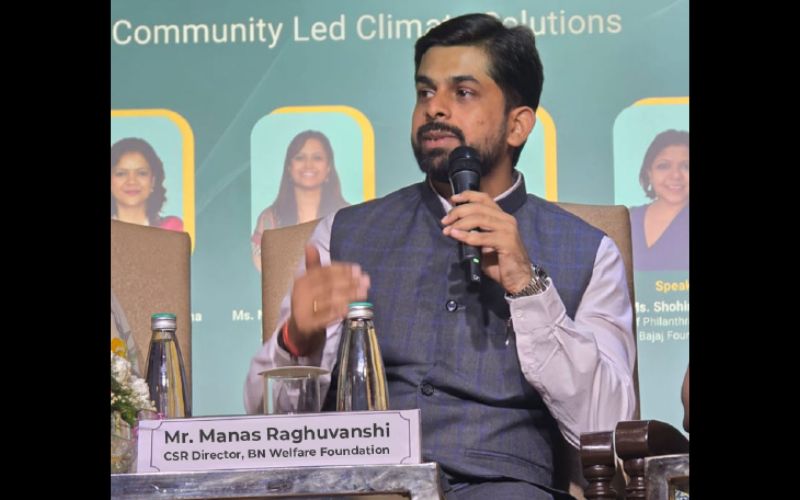“At BN Welfare Foundation, we are working to shift this narrative from awareness to action. During our recent Plogathon at Delhi’s Central Ridge Forest, more than 500 students and community members came together and collected nearly 5,000 kilos of plastic and non-biodegradable waste.” Manas Raghuvanshi, Director, BN Welfare Foundation
India generates over 4 million tonnes of plastic waste every year, and a worrying amount of it ends up in our rivers, our forests, and increasingly, in our own bodies. What makes this crisis even more dangerous is how ordinary it feels. Plastic has become part of our daily lives because it’s easy, cheap, and convenient. But that convenience comes at a long-term cost we can no longer ignore.
At BN Welfare Foundation, we are working to shift this narrative from awareness to action. During our recent Plogathon at Delhi’s Central Ridge Forest, more than 500 students and community members came together and collected nearly 5,000 kilos of plastic and non-biodegradable waste. It was a reminder that real change begins when communities take ownership.
We are also focused on deeper solutions such as promoting clean energy in schools, eco-alternatives in production, and climate education that moves beyond the classroom. In collaboration with the Ghaziabad District Authority and the River Man of India, Mr. Raman Kant Tyagi, we’ve also taken on the challenge of reviving the Hindon River, a rain-fed waterway that’s been declared ‘dead’ after decades of plastic pollution. This river, forced to carry accumulated waste into the Yamuna and beyond, is a stark reminder of how upstream negligence becomes a downstream crisis.
There’s a common assumption that the rains will wash everything away and that rivers will somehow clean themselves. But the reality is, the plastic we leave behind is ultimately making its way into our oceans, posing an even greater threat to life. At BNWF, we believe the solution lies in confronting this mindset, not waiting for the monsoons, but stepping up today, in whatever capacity we can, to clean, restore, and protect what’s still within our reach.
The author is Manas Raghuvanshi, Director, BN Welfare Foundation.
BN Group, a legacy in India’s edible oil industry, champions quality and innovation, while its BN Welfare Foundation leads initiatives in sustainability, community welfare, and environmental impact.

